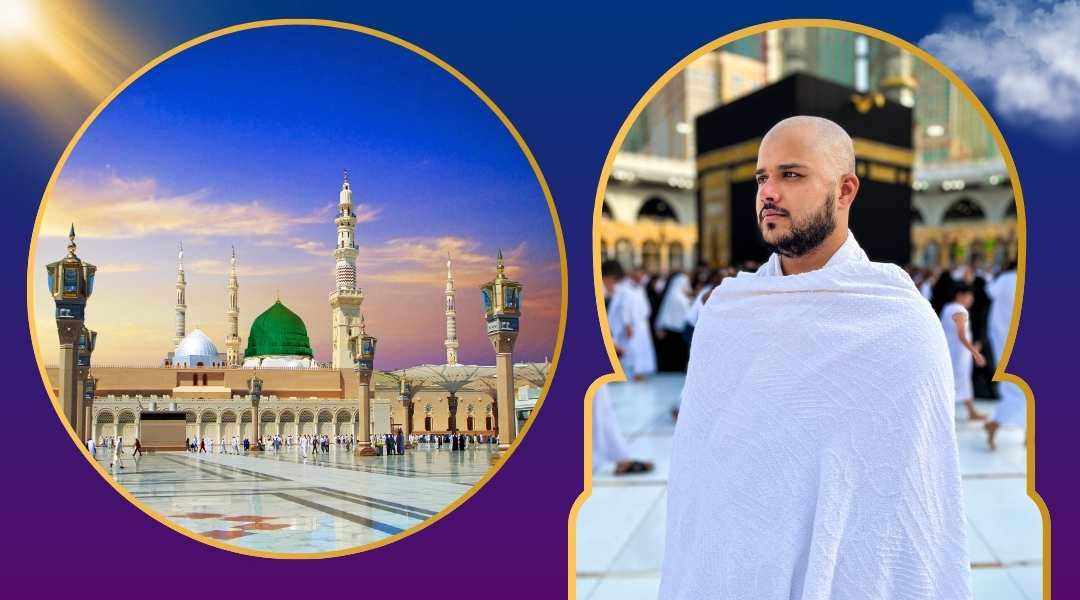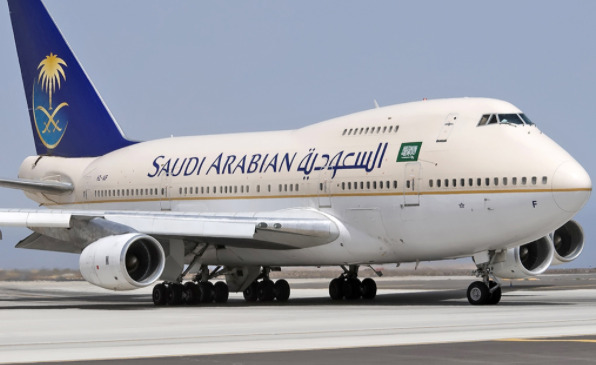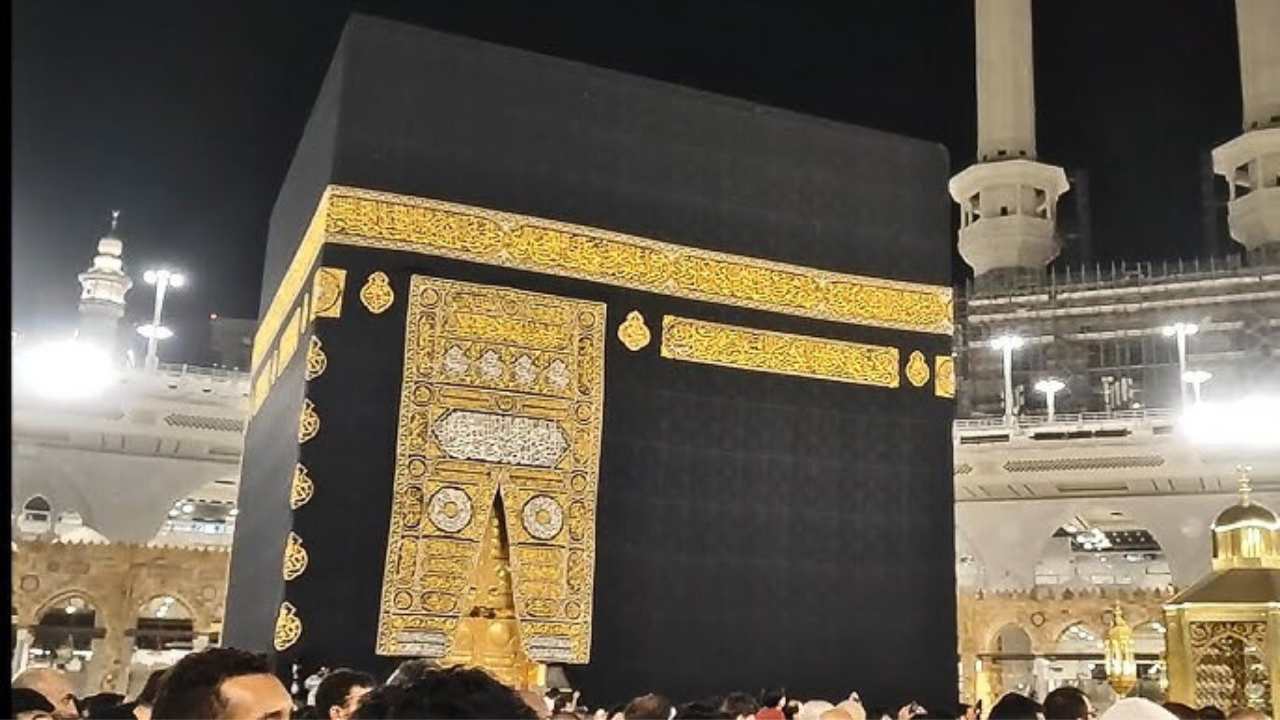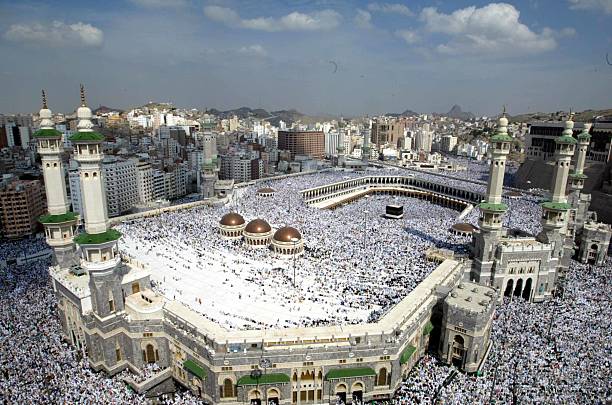Hajj is a chance to travel not to a sacred city but toward Allah’s house, where divinity and eternal submission allow soul purification. This journey is one of the five pillars of Islam that Muslims worldwide plan at least once in their lifetime. This worship act has the highest spiritual significance and is essential in purifying pilgrims' souls and a more profound connection with the universe's Creator. Its rituals have been practiced for a long historical period, and yearly, millions of people gather in Makkah to perform all these acts of worship. This guide covers the hajj's spiritual, historical, and religious importance and impact on pilgrims' lives.
Understanding the Hajj
What is Hajj?
Hajj is the pilgrimage and spiritual experience to the closeness of divine blessings and visiting the historical miracles with the naked eye. It is performed yearly in the same Islamic month, Dhu al-Hijjah, the last month of the Islamic calendar. Muslims celebrate Hazrat Ibrahim’s trials and historical rituals to purify their souls. Their primary focus is to seek the maximum of Allah’s blessings during the first ten days of the month.
Historically, Hajj started after Hazrat Ibrahim's sacrifice when, according to Allah's instruction, their wife and son spent several days in the Arabian desert without food and water. The miraculous creation of the Zamzam well and the construction of the cubic-shaped Kaaba resulted in the emergence of Hajj. Since the time of Prophet Muhammad, this worship has become a central part of Islam by declaring it a fifth pillar of Islam.
When is Hajj performed?
The religious obligation is celebrated as an annual pilgrimage in the last month of the lunar calendar. Each year, its dates shift around 10-12 days about a solar year. Muslims gather in Makkah from the 1st of Dhu al-Hijjah, and their arrival continues till the 8th of the month when Hajj rituals start.
Its rituals continue to the 12th of Dhu al-Hijjah. Although the five days are included in Hajj, its peak spirituality is observable on the 9th of the month when pilgrims gather in Arafat. At this place, they perform their waquf ritual, which is most important in the journey to spend a night in Arafat and seek Allah's blessings by submitting themselves to God's will.
Historical background and significance
Hajj emerged when Hazrat Ibrahim followed Allah's command to build the Kaaba after accomplishing the instructions to leave his wife and son in the Mecca desert, where the miracle of Zamzam came into being. Ibrahim built this cubic-shaped structure at the Zamzam site. It is also called a first house, constructed to worship and dedicated to God openly. The current ritual pattern for this pilgrimage was established in the era of Prophet Muhammad. He (PBUH) led the first pilgrimage group in 632 CE when His famous Farewell Sermon was delivered to followers.
What are the requirements and preparations for Hajj?
Hajj demands physical fitness and sound health to perform its rituals without being overwhelmed. The pilgrims should have stamina for long walking and standing hours. They must consult with doctors to perform a thorough health checkup. Travel arrangements, such as accommodation, valid hajj visa, and flight booking, are also significant logistics for hajj. Pilgrims must make a pure Niyyah by heart and mind to perform hajj for only Allah's blessings.
They must develop a comprehensive knowledge of its rituals to stay on the right track and understand the significance of each action.
The Core Values Promoted by Hajj
Unity and Equality
Hajj strongly promotes unity and equality for Muslims worldwide. During their spiritual experience, all pilgrims gather at one place, dress in the same clothes, and perform all rituals together. The discrimination of nationality, race, or social status vanishes at that point, which promotes a message of equality for all pilgrims before Allah. Whether a participant is poor or has the most affluent social status, all equally accept their submission before Allah. The process symbolizes that worldly distinctions do not matter to God, and he agrees with the participants with pure faith.
Faith and Devotion
Hajj has superior value in Muslims' lives. They consider it an annual event and a lifelong chance to strengthen their relationship with the universe's Creator. The journey allows participants to revise their affirmation of Islamic commitment and develop a strong faith in following Islamic teachings. The starting Talbiyah highlights pilgrims' devotion to Allah. Each ritual is specifically established throughout the journey to revise one's commitment to following Allah’s command.
Humility and Simplicity
Hajj showcases the core values of Islam, discouraging materialism and worldly distinctions. After entering the state of ihram, participants focus on worship and hajj rituals, freeing themselves from worldly affairs. This attire's uniformity highlights no value in materialistic possessions in the next world. The simple rituals of walking and waiting in the heat express the value of humility and abundance of arrogance to seek Allah’s blessings while enduring physical efforts.
Patience and Perseverance
Hajj is also a source of practicing patience and perseverance for physical health so that all rituals can be performed without health challenges. From long flights to the most demanding walks for a holy site visit or standing in Arafat, all activities are a test of patience while maintaining physical health.
The journey helps to stay constant and preserved for bearing the exhaustion and fatigue of challenging tasks yet staying favorable toward the primary purpose of showing dedication to all rituals. Throwing stones at the devil symbolizes the rejection of evil, whereas waiting in long queues and walking in a hot desert uncover the challenges of one's life that he must cross to get a satisfactory life.
How does Hajj impact a Muslim's life?
Spiritual Effects
Hajj significantly renews participants' faith and strengthens their connection with Allah through worship, fasting, and prayers. Repeating all the practices of the journey, which are thousands of years old, deepens participants' faith and enhances spirituality. Pilgrims perform all their worship with devotion and sincerity, purifying the soul from past sins and allowing them to make a new start according to Islamic teachings.
Social Effects
Unity and brotherhood are the prominent effects of the Hajj pilgrimage; Muslims from diverse countries share their cultural values and learnings while continuing their journey for the same worship goals. The Muslims learn about their social responsibilities and return back with a new feeling of compassion, charity, and helping needy persons. Collaboration of different cultures fosters respect and tolerance and develops an in-depth understanding of various communities.
Emotional Effects
The spiritual environment of holy sites and continuous engagement with prayers uplift Muslims' emotions. The journey has physical activation that fosters a deep connection with Allah. People come to God's house with personal regrets, emotional burdens, and the catharsis of negative emotions, purifying their souls and providing emotional relief. Returning home after performing a devoted pilgrimage delivers a feeling of fulfillment and gratitude.
Final Analysis
To sum up, the hajj is a transformative experience that leaves a holistic impact on Muslims' individual, social, and spiritual lives. It is not a simple journey but a sacred pilgrimage to experience divine presence. The journey promotes brotherhood and simplicity in one's life, as well as spending days pleasing God rather than focusing on worldly matters. It proves an ever-changing process to renew faith and strengthen faith in Allah.





